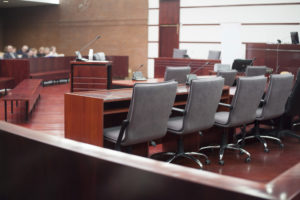A UK politician is leading the charge to take on Internet trolls and cyberbullies using social media to publish their harassment. How? He wants to change the UK’s Malicious Communications Act.
According to reports, in recent days, MP Steven Rotheram led a rousing parliamentary debate concerning Internet trolls. He was trying to convince his countrymen to change the Malicious Communications Act, by adding specific language for social media websites like Facebook and Twitter.
Rotheram is a member of the British Labour Party and served as an MP (Member of Parliament) for both Liverpool and Walton. Elected in 2010, Rotheram currently holds a seat on the Culture, Media and Sport Committee of Parliament.
Rotheram has always been passion about cybercrime; his desire to take on Internet trolls is not new. In fact, he has spent around 12 months researching the facts as well as conducting high-level meetings with leading prosecutors.
On Monday, Rotheram was not shy about expressing his opinion about Internet trolls to parliament.
“When our predecessors were putting down these bills they did not envisage that sickos would use these new inventions for these purposes. No-one wants to deny anyone the opportunity of freedom of speech, but with that freedom comes responsibility. You shouldn’t say things through the anonymity of a computer that you wouldn’t say face to face,” he told the Liverpool Echo.
The issue of Georgia Varley was raised. After she died by falling under a train, her Facebook account was hijacked, then used for abuse and mischief. A lot of the trolls on the hijacked Facebook site didn’t even know Georgia; some were even from other countries.
Facebook released a statement saying, “it is against Facebook’s rules to intimidate or harass others, and we provide everyone with the tools to report such content. When abuse is reported to us, we react swiftly, and we will disable accounts that are found to be in breach of our terms.”
The Liverpool Echo went as far as naming some of the pseudonyms in an attempt to publicly shame the guilty. Similar incidents after the Hillsborough disaster prompted Rotheram to speak with Facebook officials about the problem, saying they needed to combat the problem of Internet trolls and cyberbullying more forcefully.
Rotheram did say that existing laws – the Malicious Communications Act (MCA) mainly – could be used to prosecute in cyber abuse cases, but cautioned that the legislation needs new language to keep up with the rapidly changing online landscape.
The MCA states that sending messages that are “grossly offensive or of an indecent, obscene or menacing character” can be classed as an offense under the law.
To keep your eye on the latest in Internet law happenings, sign up for our Internet law newsletter. We cover everything from online intellectual property, to Internet defamation, to online privacy to illegal downloading. And the best part is that we don’t blast you every day with useless junk. We just send the interesting stuff. Sign up today.



Leave a Reply
Your email is safe with us.